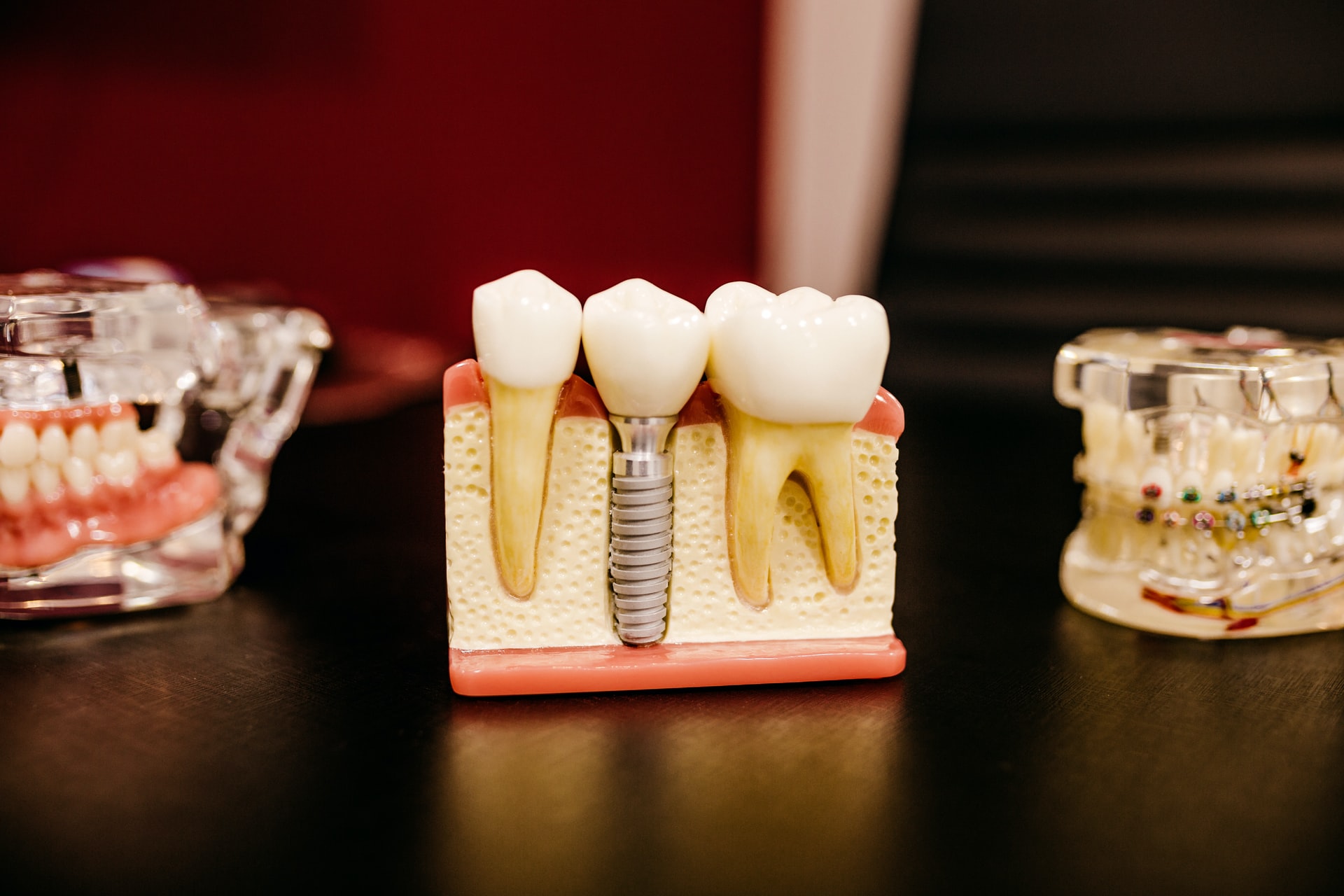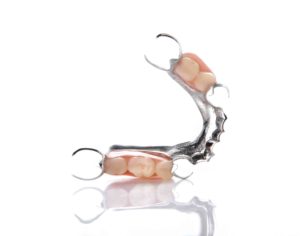Before we get into the topic of how dental implants work with dentures, let us take a quick look at what dental implants and dentures are.
What Are Dental Implants?
A dental implant is a prosthetic unit used to replace a missing tooth. Implants are surgically embedded into the jaw bone and mimic a tooth root. They are eventually topped off with an abutment (dental crown or bridge) to fill in space in the mouth. Implants reinforce the structural, functional, and aesthetic integrities of the oral cavity.
Per-Ingvar Brånemark, a Swedish orthopedic surgeon, takes credit for the invention of the dental implant in 1952. Since then, the unit has received multiple upgrades and is now the cornerstone for restorative dentistry.
There have been two types of dental implants in the past –
- Endosteal implants are present in the bone. These are in use even today.
- Subperiosteal implants rest on the jawbone beneath the gum tissues. Dentists do not use them anymore because the long-term results are poorer when they compare to endosteal implants.
What Are Dentures?
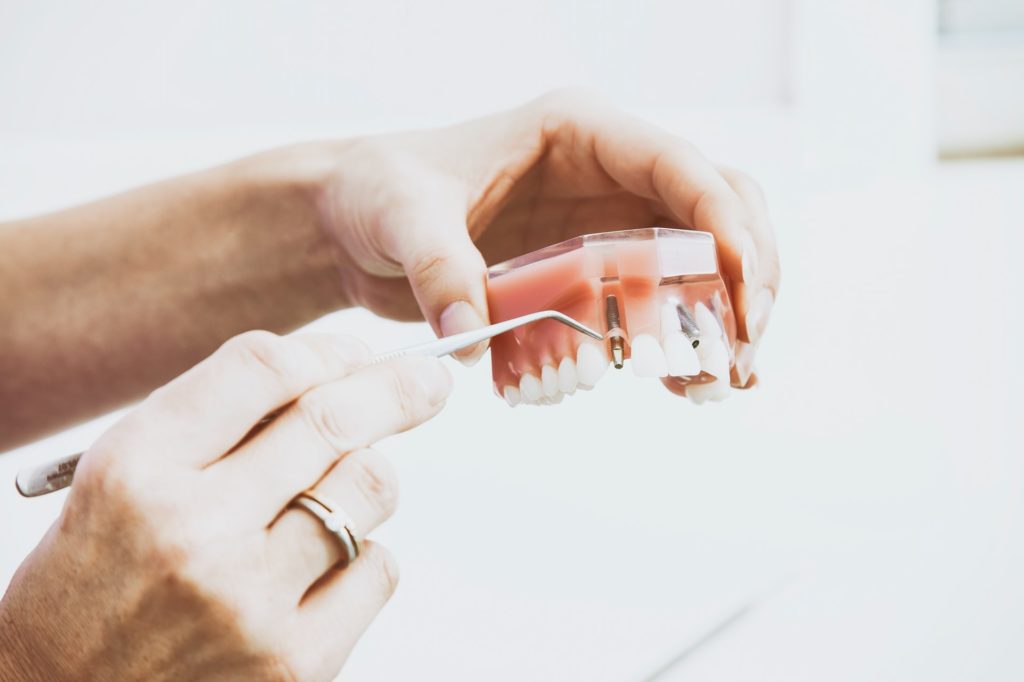
Similar to implants, dentures are also replacement options for missing teeth – except that they are removable. Dentures can be either partial or full – meaning they can replace some missing teeth and also the entire dentition.
Dentures are also very convenient in terms of availability and have shorter procedure times. Whereas getting a dental implant is not only costly but also takes a very long time for the procedure to finish.
Dentures on their own have a lot of cons –
- Although a great option for replacing missing teeth, patients have to go through a certain adjustment period following the denture delivery. It takes a considerable amount of time for the patient to start wearing, eating, and speaking with dentures.
- Dentures require replacements every 5 to 8 years, making them not a permanent solution. Since our facial structures morph with age, older dentures lose their fit.
- Dentures also have to be constantly readjusted since ill-fitting dentures can cause inflammation of the lips and mouth due to irritation (stomatitis).
- Dentures cover the hard palate which is partially responsible for smell and taste, thereby reducing the ability to taste food.
- Without proper cleaning and maintenance, dentures lead to yeast infections, bad breath (halitosis), and bad taste in the mouth.
- Although rare, dentures can cause allergic reactions in some patients.
- Patients encountering difficulty in adjusting to dentures might develop a constant gag. This happens when dentures extend to sensitive areas. In such cases, patients are unable to wear their dentures constantly.
What Are Dental Implants For Dentures?
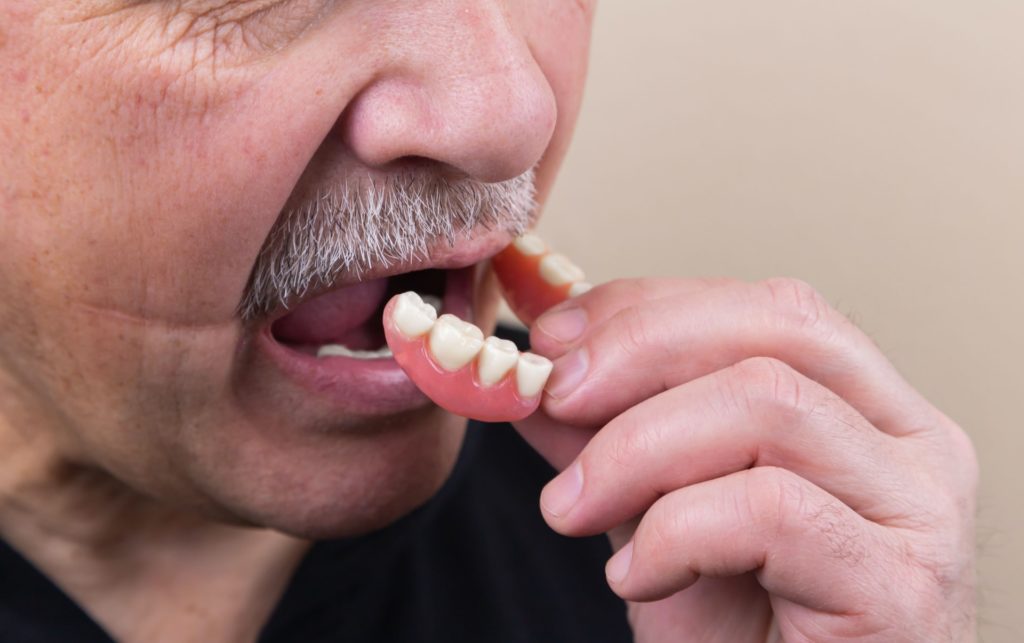
Traditional dentures, although very convenient, are also pretty problematic because they can render the user constantly embarrassed. They tend to slip while eating or talking, and have to constantly be replaced over the years, and also don’t prevent bone loss due to aging.
When the dentist place the implants into the jawbone, they fuse with the bone through a process called osseointegration. This fusion ensures that there is little to no bone loss because of the support of the titanium post. Additionally, implants are very stable making the use of implant-supported dentures pretty popular.
Implant-supported dentures are also called implant overdentures. They combine the multiple benefits of implants with the affordability of dentures. They are a lifesaver for people looking to replace their missing teeth but cannot afford to invest in a mouthful of dental implants. Implant overdentures are also a fantastic option for people who don’t have enough bone tissue to support a full set of implants.
How Do Dental Implants For Dentures Work?
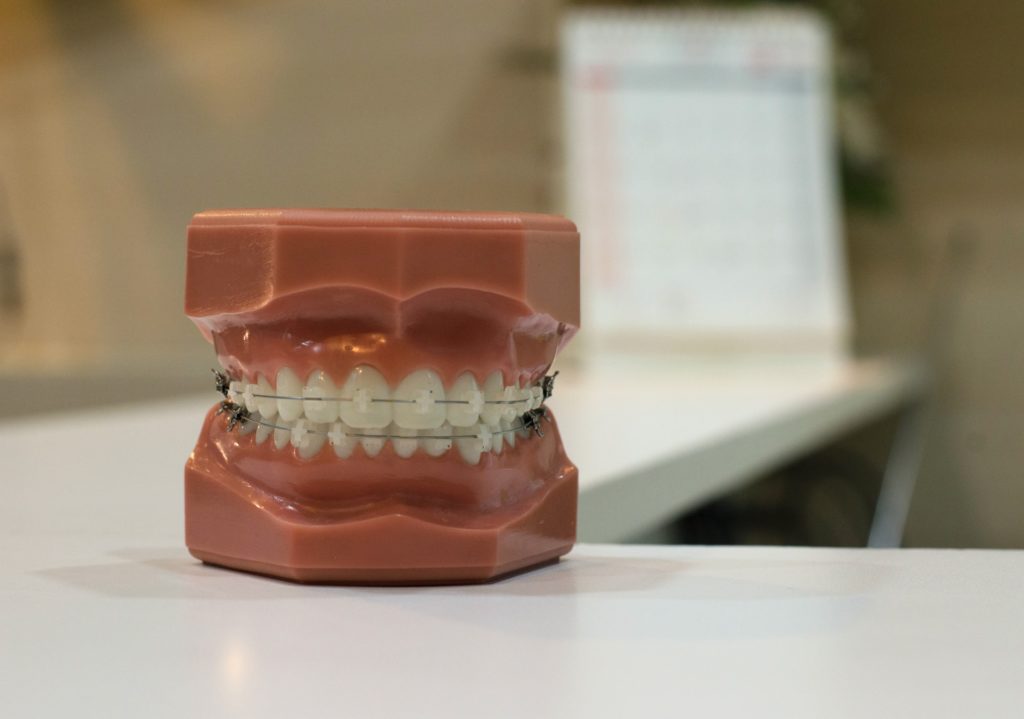
Your dentist at River’s Bend will initiate the process by thoroughly examining your oral cavity. This includes digital imaging done to ensure that the patient has an adequate healthy bone to support the implants. This also helps detect any issues that might hamper the implant installation.
The implant installation is performed under local anesthesia alone or in combination with an IV or oral sedative. The surgical site is incised to expose the bone and space for the titanium post is drilled into it. After successful placement of the implant, the dentist stitches the gum tissue back into place and ask the patient to go home. The dentist will advise cold compresses to take care of the post-surgical swelling and painkillers to deal with any soreness. The process of osseointegration can take anywhere from a couple of weeks to 3-6 months. This helps create a stable foundation for the overdentures. The patient may also get a call to the dentist’s office for regular checkups.
Once the sites have healed and the fusion is complete, impressions of the upper and lower jaws are taken and then sent to a dental lab. The lab manufactures the dentures to be placed on top of the implant. You have the option of choosing either a fixed or removable prosthesis depending on the requirement and your dentist’s recommendation.
After manufacturing the dentures, the dentist calls the patient office and and fits the dentures. This final step restores the function and appearance of the patient’s teeth.
Nobel Biocare is an implant manufacturer that coined the technique “All-on-4”. This involves using four implants on each jaw (upper and lower) to support an overdenture (8 in total). The dentist place the implants surgically and fix the denture on top of them, replacing all the teeth in the mouth.
Advantages Of Dental Implants For Dentures
Implant overdentures have many advantages over traditional dentures. These include –
- They are more comfortable than traditional dentures.
- Implants overdentures are more affordable than a full mouth of implants.
- These do not require any sort of specialized cleaning. All you need to do is brush them like you would your natural teeth.
- The biggest advantage of implant overdentures is that they help prevent bone loss.
To know more about implant-supported dentures and how they work, get in touch with the River’s Bend Family Dental team today. Call (763) 576-1855 to book an appointment with us and experience luxury dental care.

